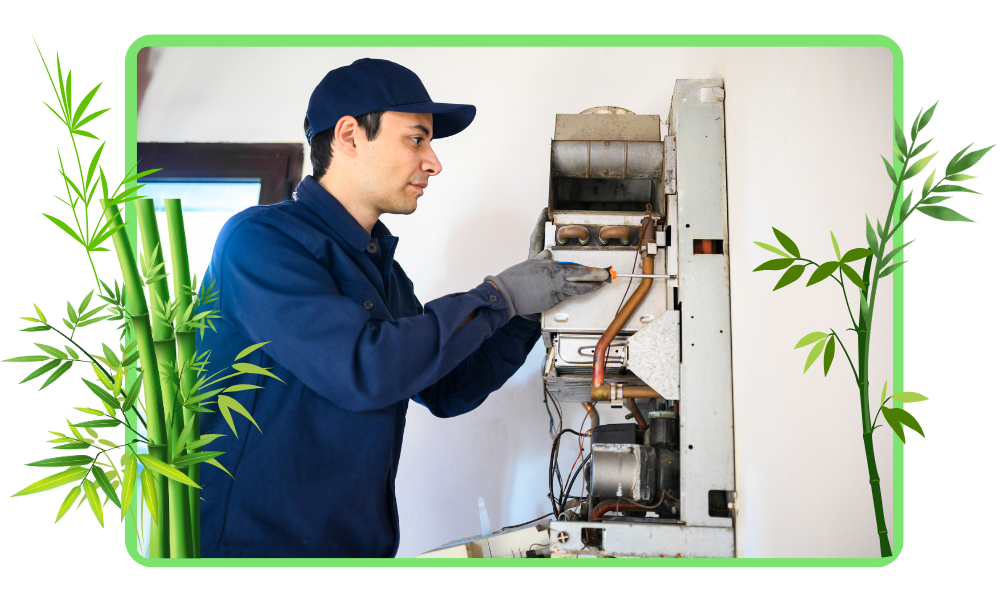
A Comprehensive Guide to Water Heaters
Introduction
There’s nothing worse than jumping into the shower and discovering you have no hot water. Thankfully, our comprehensive guide to water heaters can help you avoid such chilling experiences. In this blog post, we’ll dive deep into the world of hot water heaters, exploring different types, their benefits, their maintenance, and ways you can make an informed choice for your home. Let’s ensure you enjoy a reliable, efficient supply of hot water for years to come.
I. Understanding the Basics of Water Heaters
Water heaters are essential appliances that provide a steady supply of warm water to your home. There are three primary types of water heaters, each with unique features and advantages.
1. Conventional Tank Water Heaters
The “old reliable” of water heating solutions–and one of the most common choices–conventional tank water heaters operate by storing and heating a large quantity of water in a reservoir. This tried-and-true method ensures a steady supply of hot water for household activities. However, it’s essential to note that these heaters require continuous energy consumption to maintain the water temperature, making them most suitable for homes with moderate hot water demands.
Conventional tank water heaters cost $900 to $3,000, on average, excluding installation costs.
2. Tankless Water Heaters
In contrast, tankless water heaters represent a modern and energy-efficient approach to hot water needs. Operating on-demand, these heaters heat water only when necessary, eliminating the need for a storage tank. The result is an energy-efficient, space-saving method to provide a continuous supply of hot water. Tankless water heaters are particularly suitable for households with high hot water demands, as they eliminate the wait time associated with traditional tank heaters. No more cold showers!
Tankless water heaters cost $1,300 to $3,700, on average, excluding installation costs.
3. Heat Pump Water Heaters
If energy efficiency is a top priority, heat pump water heaters are worth considering. These systems use electricity to transfer heat from the air or ground to warm the water, making them highly efficient, especially in warmer climates. The energy-saving benefits of heat pump water heaters can contribute to a greener and more sustainable home.
Heat pump water heaters are also called hybrid water heaters. Like their conventional cousins, they use a tank to store hot water. Heat pump water heaters cost $1,200 to $3,500, on average, though these costs may be offset by a tax credit of 30% on eligible units.

II. The Benefits of Tankless Water Heaters
Let’s focus on the advantages of tankless water heaters, a popular choice for homeowners seeking energy efficiency and a continuous supply of hot water with a minimal footprint.
Tankless water heaters are an incredibly efficient option. They have revolutionized the way homes access and consume hot water by operating on demand, eliminating the need for continuous energy consumption and water storage. This on-demand function results in potential energy savings of up to 30%, when compared to conventional tank heaters.
Beyond energy efficiency, tankless water heaters boast a space-saving design that caters to the modern homeowner’s needs. Compact and wall-mounted, these units free up valuable space in homes, making them particularly suitable for residences with limited room, such as condos, tiny homes, and more. Their innovative design is not only aesthetically pleasing but also allows for more flexible installation options.
A tankless heater’s endless hot water supply addresses the most common inconvenience associated with conventional tanks: running out of hot water when you need it most. With no waiting time for a tank to refill, households can enjoy a continuous flow of hot water, a significant advantage for families with high hot water demands. This feature ensures comfort and convenience without compromising on performance.
Durability is another key benefit of tankless water heaters. With a longer lifespan compared to traditional tanks, these units mitigate the risk of leaks and water damage. They are designed to last, providing homeowners with peace of mind (and lower maintenance needs.)
Tankless water heaters stand out for their energy efficiency, space-saving design, continuous hot water supply, and extended lifespan. For homeowners seeking an attractive, forward-thinking option, tankless water heaters are the obvious choice.
III. Choosing the Right Hot Water Heater for Your Home
Selecting the right hot water heater is a crucial decision that depends on various factors. Consider the following when making your choice:
Selecting the ideal hot water heater requires careful consideration of a few different factors to ensure that your new appliance meets your household’s unique needs. Consider the following when making your choice:
1. Your household’s Typical Demands.
Evaluate the number of individuals in your household and their typical hot water requirements, as this will influence the size and capacity of the heater needed. For larger families with high demand, tankless water heaters excel in providing a continuous supply of hot water without the need for a storage tank.
2. Your Energy Efficiency Goals.
If reducing energy consumption and minimizing your environmental impact is a priority, tankless or heat pump water heaters are worthy contenders. These systems are designed to operate with minimal energy waste, offering a greener alternative for eco-conscious homeowners.
3. Your Space Requirements.
Space availability is an important consideration, especially for those living in smaller residences. Tankless water heaters, with their compact and wall-mounted design, are well-suited for homes where space optimization is crucial. This feature allows for installation flexibility, making them an ideal choice for both large and compact living spaces.
4. Your Budget.
Budget considerations are an essential aspect of the decision-making process. While tankless water heaters may have a higher upfront cost, it’s essential to evaluate the long-term benefits, including potential energy savings and an extended lifespan. A well-informed investment can lead to cost-effective and efficient hot water solutions over the life of the unit.
In Summary:
The right hot water heater for your home will satisfy your hot water demands and energy efficiency goals without consuming excess space or breaking your budget. As you weigh your options, make sure that you consider not only your immediate goals (saving on upfront costs,) but also your long-range goals (sustainability, low energy bills, and optimal use of your space.)

IV. Maintenance Tips for Hot Water Heaters
Proper maintenance is key to ensuring the longevity and efficiency of your hot water heater. Follow these tips to keep your system running smoothly:
1. Flush the Tank
– For conventional tank heaters, flush the tank annually to remove sediment buildup. This enhances your water heater’s efficiency and can reduce your energy consumption (and potentially your bills.)
2. Check the Pressure Relief Valve
– Test the pressure relief valve to ensure it’s functioning correctly. This simple step can keep your water heater operating safely and alert you to potential issues before they become emergencies.
3. Inspect for Leaks
– Regularly check for leaks in the tank and connections. This helps prevent water damage to your home–and helps you avoid costly repairs.
4. Adjust Temperature Settings
– Set the water heater temperature to a safe and energy-efficient level. Reducing the water temperature even slightly can help you preserve the environment (and potentially save on your energy bill.)
5. Professional Inspection:
– Schedule periodic inspections by a qualified technician to address any potential issues. An inspection provides more than just peace of mind–it may extend the life of your water heater by several years.
Conclusion
Hot water heaters play a crucial role in maintaining your home’s comfort and convenience. Understanding your water heater options and maintenance best practices allows you to make an informed decision that meets your household’s needs and goals.
Whether you opt for the traditional tank water heater, the modern tankless version, or an energy-efficient heat pump system, Bamboo Plumbing is here to guide you. Our team of experts is dedicated to providing top-notch service, ensuring your hot water needs are met efficiently and reliably.
For more information and personalized guidance, feel free to reach out to Bamboo Plumbing—we’re here to make your plumbing experience exceptional.

